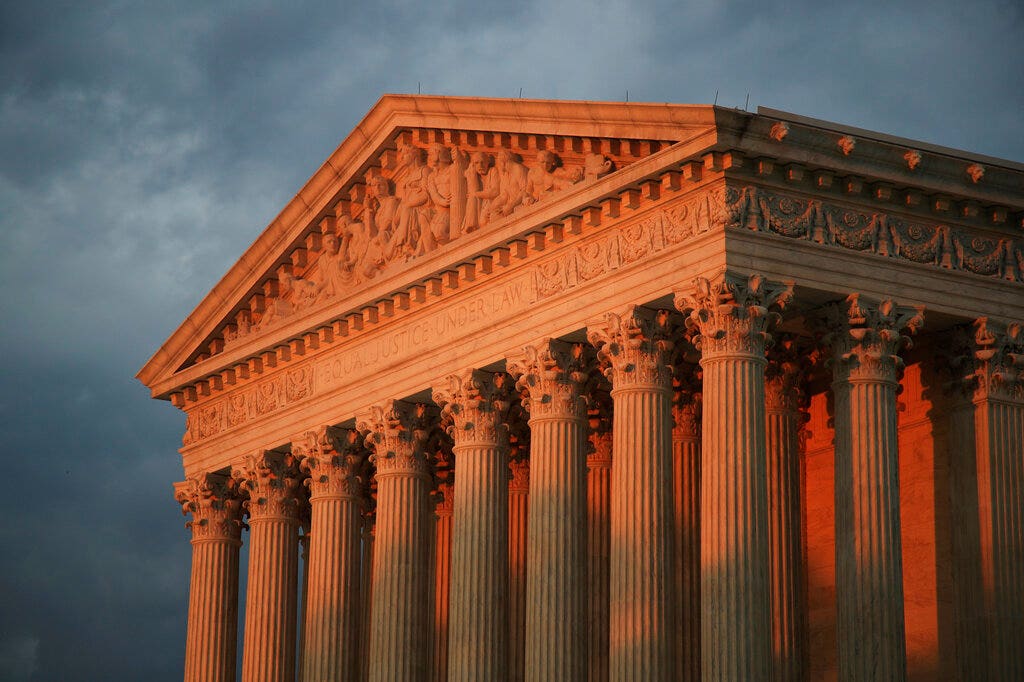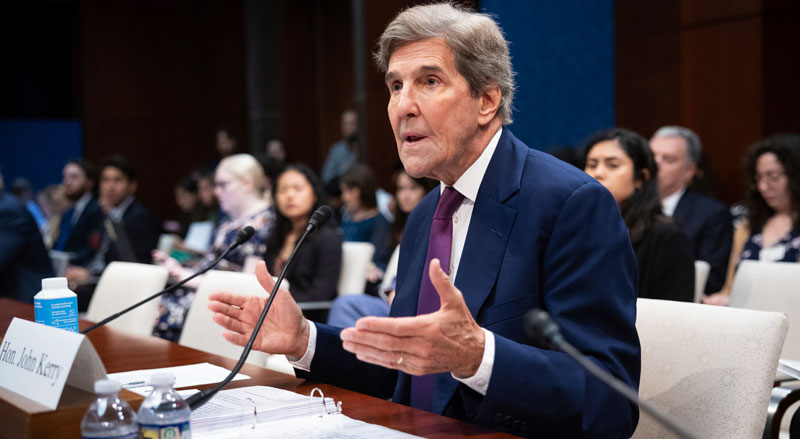Soft drink giants and the sugar tax war
Sam Hawley: Hi, I’m Sam Hawley, coming to you from Gadigal Land. This is ABC News Daily. Around the world, nations are turning to sugar taxes to address the rise in obesity. It’s slapped on things like soft drinks so consumers seek out cheaper and healthier alternatives. So why don’t we have one here, even though the medical profession is pleading for it? Today, investigative reporter Linton Besser on the powerful food and beverage industry and how it lobbies politicians to block change.
Sam Hawley: Linton, Let’s talk about soft drinks. It’s no secret that there’s a fair bit of sugar in them, but they taste good. We like drinking them.
Linton Besser: Well, we do. And, you know, I think there’s plenty of research which says that among the greatest selling items on supermarket shelves are soft drinks, these sugar-sweetened beverages. They do have a huge amount of sugar in them and around the world. They have been identified as one of the key drivers of the obesity epidemic, it might be called in countries like Australia.
News Report: Sugar is a huge part of our diets and taken in excess, it’s poisoning our bodies.
News Report: You wouldn’t eat 16 teaspoons of sugar in one hit, would you? So why do we drink it?
News Report: Two-thirds of us are going to be overweight or obese by 2030, and this will result in more than 13,000 preventable deaths.
Sam Hawley: And, of course, we’re consuming larger drinks, aren’t we? You know, we used to have the can, which was like 375ml. Now it’s the 600ml bottle. I can see there are some estimates that those bottles have about ten teaspoons of sugar in them, perhaps even more. There’s a lot of sugar in these big drinks.
Linton Besser: Yeah, there is. And that’s one of the reasons why a lot of organizations, including the Australian Council of Social Services, the Grattan Institute, and even the Royal Australian College of General Practitioners have all called at various times for a levy on sugar and particularly a levy on sugar-sweetened beverages.
Sam Hawley: So a sugar tax, that’s not an unusual thing, is it? Lots of nations have a sugar tax.
Linton Besser: Yeah, there’s about 50 odd around the world. You know the United Kingdom has a form of levy on sugar and so does Mexico. And there’s been a couple of studies that have shown that the tax appears to be working in Mexico. To take one example, it was introduced in 2016, and these studies say that it has led to a 37% reduction in soft drink sales and that if the trend continues over ten years to 2026, about a quarter of a million cases of obesity will have been prevented and 40% of those would have been among kids.
Sam Hawley: But Linton, it appears in this country there’s little interest in bringing in a sugar tax. The previous government wasn’t interested in it. The Albanese government now doesn’t seem to be interested in bringing in a sugar tax. The Health Minister, Mark Butler, he’s said as much.
Mark Butler: We don’t have any plans to do that. It wasn’t part of the obesity strategy that we inherited from the previous government.
Sam Hawley: So let’s unpack why so many other countries have done so. But we can’t do likewise. What’s the reason behind that?
Linton Besser: Well, I think it’s fair to say that the soft drink manufacturers and indeed junk food manufacturers worldwide work very, very hard to keep these kinds of regulatory interventions at bay. And there’s been a long history of this. You know, the Australian Beverages Council, just to take one example, they’re the kind of peak lobby group for soft drinks in Australia.
They say that a sugar tax is overkill and unnecessary and that the ambitions of such a policy are already being achieved naturally in the marketplace and that people are naturally picking low sugar or zero sugar drinks or selecting other things. And they have made voluntary efforts to try to reduce sugar across what they describe as their portfolio of of products on the shelf.
Geoff Parker: Australia’s beverage industry supports healthy lifestyles and balanced diets. As an industry, we know that we are responsible for encouraging healthy lifestyles and providing choices for people to achieve that balance. This commitment is.
Linton Besser: But I had a look at this and I thought, Gee, this is a really interesting area. We already know that there have been a series of kind of scandals where the junk food industry has pushed very hard to influence public policy debate in this area. You know, The New York Times published an exciting thing a while ago, which showed Coca-Cola funding millions of dollars worth of scientific research which tried to point the debate towards exercise rather than the intake of foodstuffs.
So it’s an area where it’s highly contested and we have an industry that is trying to do its best to influence politicians and influence the bureaucracy to ensure that their bottom line isn’t put at risk.
Sam Hawley: And putting aside something like a sugar tax, even in this country, changing the nutritional information on the panel on the side of a product that’s even proved to be really difficult, hasn’t it?
Linton Besser: That’s right. And there was a review of labeling in 2011, so 12 years ago. It’s called labelling logic. It was it was a panel chaired by Neal Blewett, Bob Hawke’s health minister. He releases this report in 2011 and it makes this recommendation that quote-unquote added sugar be identified in the nutrition information panel on a product that was in 2011.
It still hasn’t happened. Last year, FSANZ, which is the Food Standards Authority for Australia and New Zealand, it undertook what it described as, quote, targeted consultation on a proposal to identify added sugars in products. And they often are kind of disguised, oozed with chemical names, sucrose, glucose, fructose, and things like that. There are many of them.
Last month, both the Board of the Food Standards Authority and a Council of Food Ministers from around Australia and New Zealand were meant to have approved or at least debated the proposal. Well, none of that has happened and we don’t know why. And now I asked FSANZ the authority, and it said the delay was because the proposal is a quote, complex to implement and it’s a quote, and considering the next steps.
Sam Hawley: Well, this is 12 years after Neal Blewett recommended it. Just tell me. Neal Blewett He also came up with other recommendations. Tell me about those.
Linton Besser: Well, there is this extraordinary case where he recommended that a warning message about the risks of consuming alcohol while pregnant be mandated on all booze consumed in Australia. You know, as many as 5% of children born in Australia each year suffer from foetal alcohol spectrum disorder and it’s entirely preventable.
Now, just like with sugar, the industry immediately said, Oh no, no, don’t worry, we don’t need government intervention. We’ll do it on our own. And quickly, it introduced its own pregnancy warning label. And crucially, Sam, it was not mandatory. Six years later, they they do a kind of survey and discover, of course, that fewer than half of all alcohol sold across the country carried any kind of pregnancy warning labels.
Sam Hawley: You rarely see that label.
Linton Besser: Indeed. And the intensity of the lobbying around this was extraordinary in 2019. The rally increased in intensity and it sought and received meetings with Richard Colbeck and David Littleproud, who were the Commonwealth ministers responsible, and the food ministers rejected it.
And David Littleproud released a statement to the press saying that the label posed, quote, an unreasonable cost burden on the industry. Now what is fascinating about my research is that he already had a brief from his department that he’d received weeks earlier, and it said, quote, There is a lack of evidence to support the concerns raised by the alcohol industry.
Sam Hawley: But Linton, it’s gone through now, hasn’t it? The states and territories, they took ages to get here, but they did agree eventually to implement this label.
Linton Besser: It is it’s gone through now, but it’s only going to be mandatory at the end of this month. And Sam, there’s quite an amazing little political story in what happened next, because you needed a majority of states and territories at this food council to approve a measure like this. But the extent of the pressure is such that something unprecedented happened when this vote occurred.
The ministers for a number of states New South Wales, Queensland and South Australia and the Commonwealth demanded that when the official communiqué was released by the Food Authority about the vote, that their position be noted publicly that they did not want the label to go ahead. And the only motivation I can think of, Sam, for them making a demand like that is to send a signal to the alcohol industry or the drinks industry that it wasn’t they who wavered in their loyalty.
Sam Hawley: Yeah, right. And this is just for perspective, Linton. This is years of fighting and arguing about a measure that’s designed to protect unborn children from the effects of alcohol. Former Senator Stirling Griff, He’s really concerned about this, isn’t he, Linton? He wants an inquiry.
Stirling Griff: Cosy relationships between governments and lobby groups are a cancer on our democracy. We need transparency.
Linton Besser: It’s quite amazing because in 2021 he brought into a speech to the Senate the persistent rumour that the alcohol industry had fought hard to have two key officials removed from the Food Standards Authority in kind of anger at the fact that this label went ahead. And indeed Robyn Kruk and Mark Booth, the former chair and chief executive, did not have their contracts renewed. Now, the alcohol industry denies having anything to do with it. And David Littleproud didn’t respond to my questions about it. But Stirling Griff told the Senate that it smells of interference.
Stirling Griff: We need transparency to know what deals are being done and how this may affect Australians. We need transparency to hold politicians and lobbyists to account and to create incentives for them to act in the public interest instead of their interests.
Sam Hawley: All right, Linton. So what does this all say about the future of this sugar tax that medical professionals in this country say we desperately need to solve our obesity problem to save lives? It doesn’t sound good.
Linton Besser: Well, I think what it says is that it’s so contested and that millions of dollars are poured by big multinational food and drink companies into, you know, lobbyists into favorable research, you know, into trying to persuade the polity that it should not intervene on behalf of consumers. And it’s sophisticated in the way it does it. And it’s subtle in the way that it does it. But that case study of the pregnancy warning label also shows how ruthlessly it’s done.
Sam Hawley: Linton Besser is an investigative reporter with the ABC. From next month, Australian beer, wine, spirits and pre-mixed drinks will have to warn of the harms of drinking alcohol while pregnant. The alcohol industry wanted to stick with a label that said it was safest not to drink while pregnant, and it has said the best place for women to get information is from a doctor.
This episode was produced by Veronica Apap, Laura Corrigan and Sam Dunn, who also did the mix. Our supervising producer is David Coady. I’m Sam Hawley. To get in touch with the team, email us on ABC News Daily at abc.net.au. Thanks for listening.




